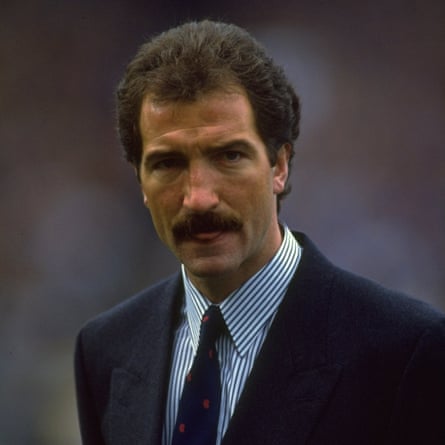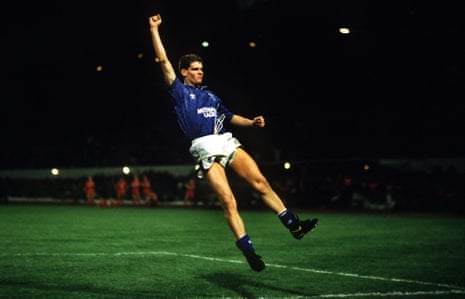Life was pretty good for Rangers fans at the start of the 1988-89 season. Seven wins out of eight in the Premier Division – including a 5-1 destruction of Celtic, who had won the title by finishing 12 points ahead of them the previous season – had catapulted Graeme Souness’s team to the top of the league.
Rangers did suffer their first league defeat on 8 October, but that in itself was no disaster. Their loss at Pittodrie to an unbeaten Aberdeen side was hardly a shock. However, the events of that afternoon would have far-reaching consequences for some of the players involved and both sets of fans.
With the emergence of Aberdeen as a force in Scottish football under Alex Ferguson, a rivalry developed between the two clubs – emphasised by two fiery matches in 1985 – and the antipathy showed little sign of abating when Souness arrived on the scene.
The landscape of Scottish football was shifting; Ferguson had departed in 1986 and Souness, backed heavily in the transfer market, was delivering success to Rangers once more. Their great start to the 1988-89 season was the beginning of Rangers’ run to nine titles in a row.
If the flames of the rivalry between Aberdeen and Rangers had been flickering before their meeting in October 1988, a huge barrel of fuel was poured on to that fire in the fifth minute at Pittodrie. Neil Simpson’s horrific tackle on Ian Durrant would cement the hatred forever. Be warned: if things like this make you feel a squeamish, it might not be best to follow the YouTube link of Simpson’s tackle on Durrant. Challenges had already been flying in beforehand, with former Aberdeen midfielder Neale Cooper laying down a few markers in a Rangers shirt. Sadly, Durrant was about to be on the receiving end of one tackle too many.
With the ball loose in front of the Rangers box, Simpson and Durrant headed towards each other. The Aberdeen midfielder, went completely over the top of the ball and stamped down on Durrant’s leg, the full horror of the injury clear for all to see on the replays. Football during this decade was a tough business, but quite how Simpson remained on the pitch is a mystery. “Durrant’s exit after five minutes’ play should have been followed by the departure of his assailant, Simpson,” the Times reported. It was a sending off in any era.
Durrant lay on the turf in agony, desperately in need of medical attention. Astonishingly, he had to leave the pitch on the back of physio Phil Boersma. “At the time, the medical service said the only available stretcher was outside the ground in an ambulance,” Durrant recalled later. And some people bemoan that health and safety has gone mad.
The tackle did little to calm matters and the challenges continued to fly in, with both Alex McLeish and Ally McCoist suffering cuts in a match that the Times described as “blood and blunder.” Occasionally there was some football played, Aberdeen eventually running out 2-1 winners.
Cooper gave Rangers the lead – no refusing to celebrate a goal against your former club on this day – but second-half goals from Jim Bett and Charlie Nicholas secured the points for Aberdeen and inflicted a first league defeat of the season on the visitors. Unsurprisingly, Rangers were furious.
Skipper Terry Butcher was later fined £500 for kicking a hole into the referee’s dressing room door, with Souness unable to contain his anger. “We accept that every game we play is a cup final for the opposition,” said Souness. “But it’s very difficult to restrain my players under the provocation we experience on many occasions, such as Saturday’s match at Aberdeen. The whole of Scottish football should be concerned with the tackle that has threatened Ian Durrant’s future as a professional footballer.”

With his cruciate ligaments in his knee torn by the challenge, Durrant’s faced a battle to play again at the top level. He had a four-hour operation the Monday after the match and, after another session under the surgeon’s knife, he went to the US for a second opinion and yet more surgery. “When I eventually went to America to get it fixed, they couldn’t believe what the Scottish surgeon had done to my knee in terms of how he had rebuilt it.”
The midfielder, rated as one of the brightest prospects in Scottish football, continued to battle back to fitness and eventually made his Rangers return in 1991, when around 30,000 fans turned up to Ibrox to watch him play in a reserve match. It’s a testament to his character that he returned at all, but Durrant never shone as brightly again. “I was never going to be the same player,” he reflected later.
“I went from being a runner breaking the lines to being more of a passing player. My whole game changed. I never had the spark that I used to have. I lost a few yards, which was a big part of my game. I had to adapt and use my left foot more than I did because of my injury. I was predominantly right footed. All I did in training was kick the ball with my left foot.”
Durrant went on to win major honours after his comeback and starred in Rangers’ memorable European Cup run in the 1992-93 season. Having been robbed of almost three years of his career, he sued Simpson for £2m and later accepted an out-of-court settlement reported to be around £350,000. It is hard not to think of what might have been though.
There was one certainty surrounding the whole affair: the uneasy relationship between the two clubs was now at the point of no return. Willie Johnston’s stamp on John McMaster in 1980, the rise of Aberdeen as title rivals, and Rangers’ resurgence under Souness all combined to add to the growing tension between the two clubs. The Simpson challenge on Durrant is often seen as the tipping point.
With some Aberdeen fans singing about the tackle on Durrant and the two clubs continuing to contest for major honours at the end of the 1980s and into the early 1990s, there was no chance of the bitterness evaporating. The rivalry is still very much alive three decades on from that fateful day.

Comments (…)
Sign in or create your Guardian account to join the discussion